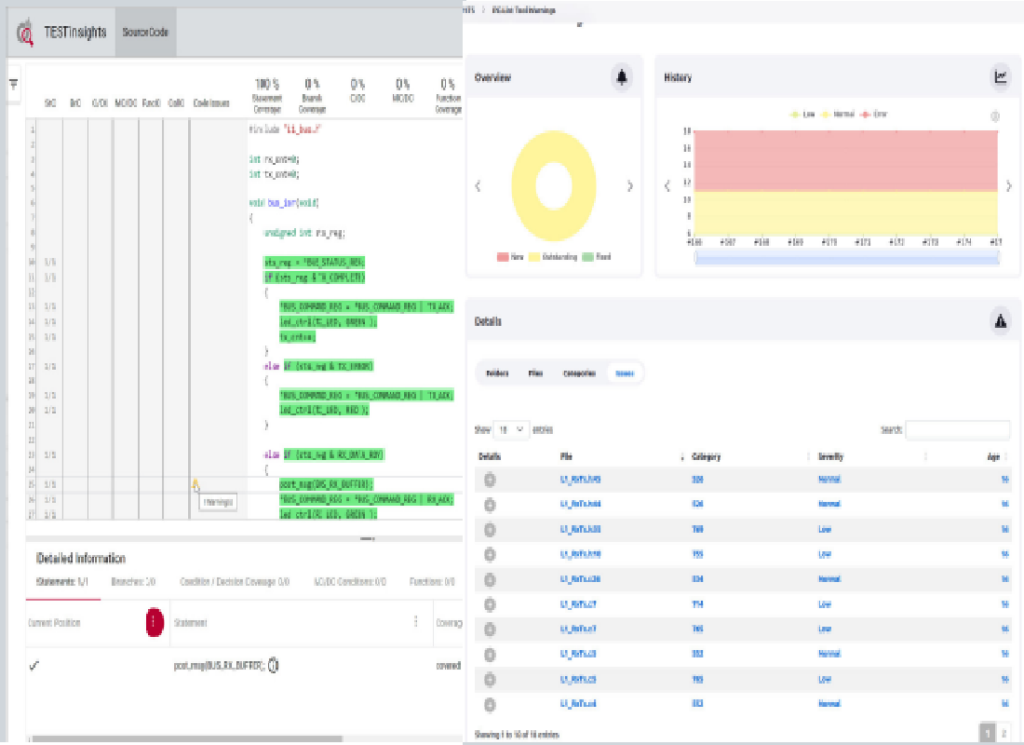SOFTWARE PRODUCTS
PC-lint Plus
PC-lint Plus is a static analysis tool that finds defects in software by analyzing the C and C++ source code.
Like a compiler, PC-lint Plus parses source code files, performs semantic analysis, and builds an abstract syntax tree. From there, PC-lint Plus employs various mechanisms such as Data Flow Analysis, Abstract Interpretation, and many other technologies to provide a concrete and complete analysis of both individual files and an entire project. PC-lint Plus then reports its findings using clear diagnostics. The diagnostic message format is fully customizable and includes precise location information and context necessary to quickly address defects.
PC-lint Plus Advantage
- Complete all development and test tasks with only one tool
- Provide intelligent automated testing
- Simulate and test ECU diagnostics with a variety of options
- Evaluate results with clear text and graphics
- Notice and revise error situations in the early development stage
PC-lint Plus More
Widely Compatible
PC-lint Plus runs on Windows 7/8/10, Linux, and macOS and can analyze source code targeting virtually any platform. By providing support for a wide variety of compilers and the ability to integrate with user’s existing IDE, build process, or continuous integration system, PC-lint Plus can quickly be incorporated into any project. PC-lint Plus supports plain text, HTML, and XML output which can be customized to support virtually any format.
Scalable and Complete
There are many different kinds of serious code flaws, and PC-lint Plus offers a diverse range of detection capabilities for improved software quality confidence. It identifies a wide range of defects and vulnerabilities, and can quickly identify root cause with actionable fixes.
In addition, PC-lint Plus scales efficiently to utilize multiple processing cores so that developers and testers can quickly analyze large projects.
Secure On-site Analysis
PC-lint Plus analyzes deeply to find potential bugs and suspicious code. It runs locally on developer’s workstations, build servers or continuous integration servers. It does not use an internet connection and will never collect nor leak data, code, statistics, analytics, or any other information from user’s system over any channel.
Certified for ISO 26262 and IEC 61508
PC-lint Plus has been certified by exida® for ISO 26262:2018 (ASIL D qualified) and IEC 61508:2010 (SIL 4 qualified). Therefore, users can confidently use PC-lint Plus on safety-critical projects.
Comply with Safety Standards
Enforce compliance with industry coding standards including MISRA C and C++, AUTOSAR, and CERT C, customize detection of individual guidelines, and easily support guideline deviations with precise diagnostic suppressions.
